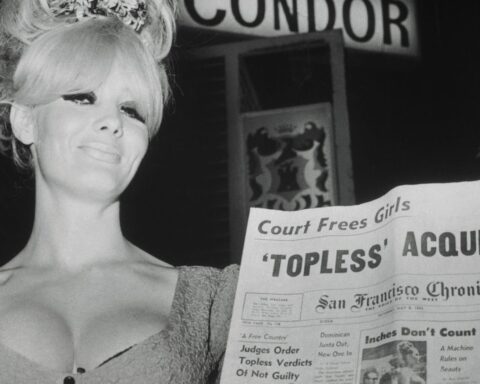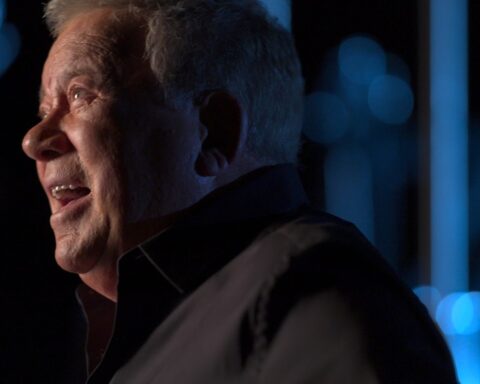Half the Picture
(USA, 94 min.)
Dir. Amy Adrion
There’s nothing more satisfying than watching a group of trailblazing women unabashedly deconstruct a historically patriarchal system. That’s why Amy Adrion’s debut documentary Half the Picture, which played at the 2018 Inside Out Festival, is a must-see. Featuring some of the most high-profile women directors of film and television – Ava DuVernay, Jill Soloway, Karyn Kusama, Kimberly Pierce (the list can go on) – the doc delightfully slams the discriminatory practices against female directors in Hollywood.
Half the Picture opens with Jessica Chastain’s famous speech at the 2017 Cannes Film Festival that anticipated the cultural conversation to come later that year with the #TimesUp and #MeToo movements. After serving as a member of Cannes jury, Chastain denounced the misguided representation of women in film, calling for more female filmmakers in the industry. Chastain’s timely and articulate speech is a robust and fitting introduction to the film, and sets the tone for the truth-telling testaments that follow.
Using the EEOC investigation into Hollywood’s hiring processes as her framework, Adrion untangles the hidden depths of sex discrimination in the industry. For one, women face an insulting lack of financial support from the industry. While male filmmakers regularly get lavish offers from studios, women – with similar or more experience – struggle to get their films financed. And it’s even worse for women of colour who endure systemic racism in addition to Hollywood’s misogyny.
Besides financing, female directors are subjects to numerous stereotypes. One such belief is that women can’t direct action films. And while women have directed some of the highest grossing and most acclaimed action movies (Patty Jenkins’ Wonder Woman and Kathryn Bigelow’s The Hurt Locker immediately come to mind), the bias is deeply ingrained in Hollywood’s psyche.
Many problems addressed in the film are universal. For instance, female filmmakers often experience additional level of scrutiny for being mothers. Sexual harassment in the workplace is painfully common. There’s also a pervasive idea that filmmaking implies working in severe, nearly military conditions that are not suitable for women. It’s interesting because a similar argument comes up in another female-directed documentary released this year – Maya Gallus’ The Heat: A Kitchen ®evolution – which profiles gender inequality in the restaurant industry. Both films prove that, regardless of the industry, men would always come up with creative narratives to prevent their non-male counterparts from rising to the top ranks.
Stylistically, Half the Picture almost entirely consists of talking heads and the footage from the subjects’ films. But Adrion’s simplicity doesn’t equate with her lack of ingenuity. Adrion would often capture her crew behind-the-scenes as they are filming the directors. This technique is stirringly effective. Given the context of the film, seeing an all-women-crew in action smashes the chauvinist biases and illustrates the importance of representation.
Half the Picture isn’t without its own intricacies. While subject Lena Dunham preaches about equality on-screen, it’s hard to overlook her controversial off-screen persona that includes speaking from a tone-deaf place of white privilege and “hipster racism.” (Just recently, Dunham faced backlash for defending her friend accused of sexual assault.) Jeffrey Tambor’s presence in the film (even though only through the excerpts from Jill Soloway’s Transparent) is also cringe-worthy. Tambor was recently accused of sexual misconduct and inappropriate behaviour on set. Dunham and Tambor don’t make the film any less vital or empowering, but their presence pinpoints the complex and crooked nature of the industry.
Despite its generally upbeat tone, Half the Picture is not an easy watch. It’s a reminder that the systematic discrimination of women, trans and non-binary filmmakers is as drastic as ever. But with her feature debut, Adrion shows that the unified voice of non-male filmmakers is also stronger than ever. This resilient voice is a rebellious and invigorating call to action.










